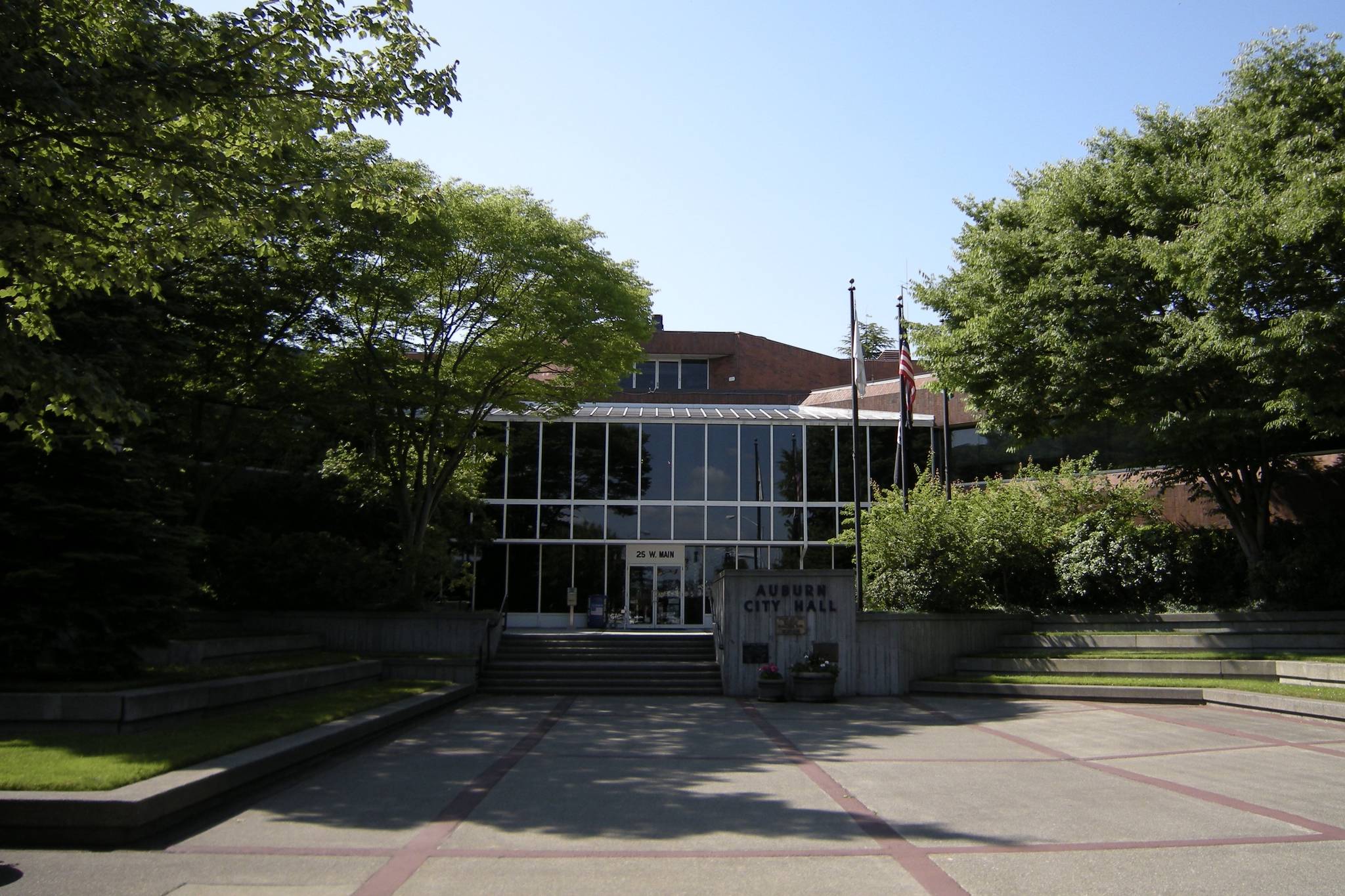The pandemic year of 2020 demanded adjustments to every aspect of life, from whom you spent time with and where, where you ate, how your children were educated.
It was also a wild ride for the people charged with keeping the city of Auburn’s financial head above water.
“It was a roller coaster of a year,” Jamie Thomas, financial director for the city of Auburn, told the city council March 8 as she laid out where the city of Auburn ended 2020 financially.
Here are a few highlights from her report.
As Thomas noted, many of the city general fund revenues declined because of Gov. Jay Inslee’s “Stay Home, Stay Healthy” order that closed all non-essential businesses in March 2020. By November, Inslee had enacted additional restrictions because of the increased rate of COVID-19 infections.
The upshot was that city revenues through the end of 2020 were down from what they would have been in a normal year. And what took the brunt of the beating was the admission tax, the gambling tax, culture and recreation, and rents and leases.
So, the city did what one may have expected it to do: it adjusted some general fund revenue budgets downward to reflect new expectations for 2020, and cut spending to close the expected revenue gap.
In 2020, Thomas said, general fund revenues totaled $81.1 million and were $4.6 million, or 6%, favorable to revised budget expectations. Thomas estimates that the annual revenue loss to the General Fund in 2020 because of COVID-19 was between $6 million and $9 million.
To close the gap, the city implemented the following policy changes in mid-2020, which in sum accounted for $2.7 million in incremental revenue to the general fund.
• Diverted interest earnings for most funds to the general fund for 2020, retroactive to April. Because of this change, the incremental revenue to the general fund was an additional $263,000.
• No longer allocated a portion of the Motor Vehicle Fuel Tax revenue to the Arterial Street Fund for 2020, so that that slice of revenue from the state stayed in the general fund.
• Replaced the funding source for the Arterial Street Fund with real estate excise tax money. This policy change was made retroactive to January, and the incremental revenue in 2020 to the general fund because of this change was about $464,000.
• Kept all utility tax revenues in the general fund for 2020 and replaced this funding source for the arterial street preservation fund with Real Estate Excise Tax (REET) funds. This policy change, which was also made retroactive to January, resulted in $2 million in incremental revenue to the general fund.
Notable variances to the budget include:
• Retail Sales Tax: The sales tax report through December 2020 reflects amounts remitted to the City of Auburn based on sales from November 2019 through October 2020. Revenue losses compared to the year prior were seen in several categories, most notably in the manufacturing, automotive, and service sectors.
While sales tax revenues were down in some areas, there were some categories that exceeded expectations, Thomas said, most notable among these being the construction category, which increased by $876,000 in 2020 compared to 2019. While the city had expected retail sales tax dollars to be considerably lower than they were 2019 because of COVID-19, 2020 actuals were $90,000, or 0.5% higher than the year prior, Thomas said.
• Building permit revenues in 2020 totaled $836,000 and were $116,000, or 16.1%, above budget, although this revenue source ended the year nearly $400,000 under revenues that were collected in 2019.
While the “Stay Home, Stay Healthy” order did pinch building permit revenues, there were three significant commercial projects in the city that contributed to higher than anticipated revenues in 2020: the replacement of Pioneer Elementary School, the construction of Auburn Elementary School #16 and of the Bridge Point Warehouse.
The city issued 476 building permits in 2020, which was 13.6% less than the number of permits issued in 2019, Thomas said.
• Culture and recreation revenues collected in 2020 summed to $1.6 million, but were $962,000 under what was collected in 2019. These reduced revenues were a direct result of the COVID-19 pandemic, which caused the city to close most of its Parks, Arts and Recreation activities and services last March. While some activities resumed later in the year, these were generally at a reduced capacity, and other activities continued to be on hold, delayed, or canceled to comply with the governor’s guidance for Washington’s Safe Start phased reopening plan.
• The 2020 budget anticipated the need to transfer $4 million from the cumulative reserve fund, but because of significant underspends in 2020, only $2 million of the $4 million transfer was needed.
The 2020 ending fund balances will not be finalized until June of 2021, pending year-end adjustments and certification by the State Auditor’s Office. Once the final ending 2020 fund balances are available, budgeted beginning 2021 fund balances will be reconciled and adjusted accordingly, Thomas said.
General fund expenditures in 2020 totaled $73.1 million compared to a revised budget of $85.4 million. This represents a $12.3 million, or 14.4%, favorable variance to the budget.
Thomas said all departments operated within their allocated budget in 2020, with salary and benefit costs under spent by $8 million. In addition, the services and charges category was under spent by $3.7 million, predominately in professional services and miscellaneous expenditures, Thomas said.


